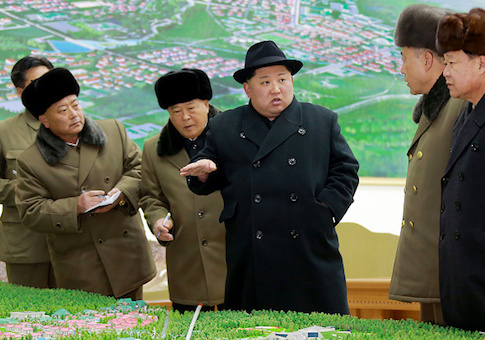Arm sales by international defense contractors have risen for the first time in five years, due in part to the mounting threat of North Korea's missile and nuclear ambitions, a Swedish think tank announced Monday.
Global weapons sales by the industry's top 100 companies rose 2 percent in 2016 to nearly $375 billion after a half decade of decline, the Stockholm International Peace Research Institute (SIPRI) found in a new report. The figure represents a 38 percent increase from 2002, when SIPRI began recording corporate arms sales.
The ongoing North Korean military threat helped drive the surge, with arms sales by South Korean companies reaching $8.4 billion in 2016—a 21 percent increase from the year prior.
"Continuing and rising threat perceptions drive South Korea's acquisitions of military equipment, and it is increasingly turning to its own arms industry to supply its demand for weapons," said Siemon Wezeman, a senior researcher with the SIPRI Arms and Military Expenditure Program. "At the same time, South Korea is aiming to realize its goal of becoming a major arms exporter."
In November, South Korean President Moon Jae-in announced the largest annual increase to Seoul's military budget since 2009 while vowing to maintain an "overwhelming military superiority" over the North. The remarks followed a pledge by Moon to accelerate the nation's military buildup through efforts to strengthen Seoul's missile defense and first and second-strike capabilities to counter Pyongyang.
Moon has long called for South Korea to assume greater independence over its military. In addition to enhancing reliance on domestic producers for weapons procurement, Moon has also pressed the United States to handover command of its armed forces in the event of war with North Korea.
South Korea currently has peacetime command of its 655,000 active duty troops, but under an agreement implemented after the Korean War in the 1950s, the United States would take operational control of the American and South Korean militaries if war were to breakout on the peninsula.
